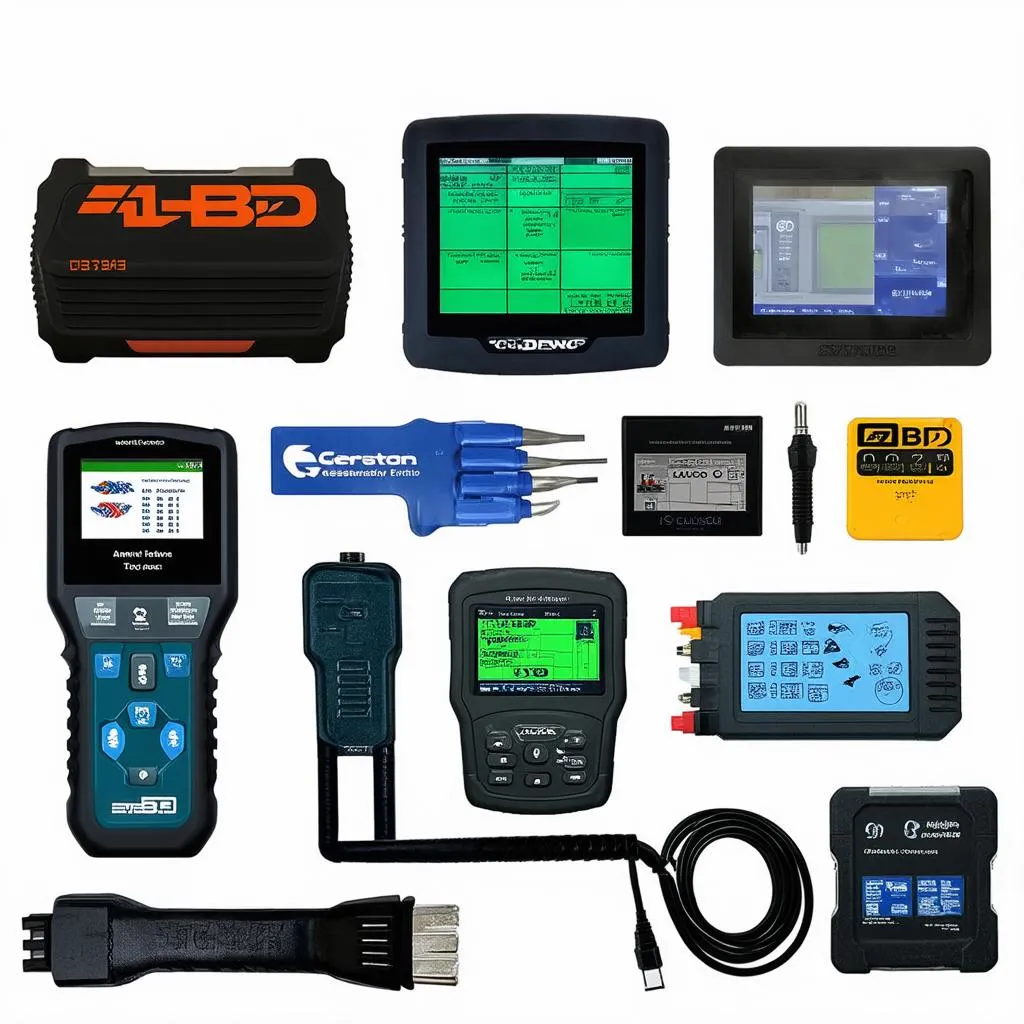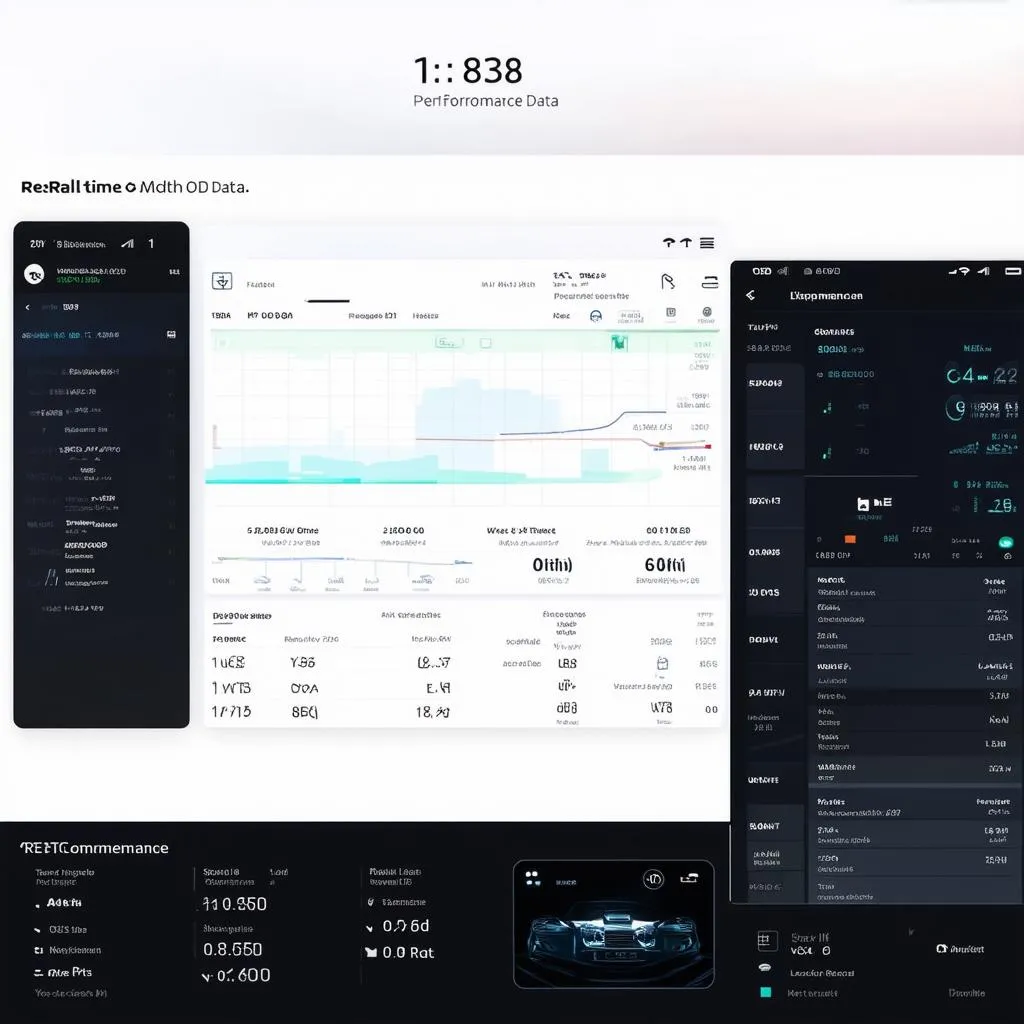Have you ever wondered what your car is saying to you? It might sound crazy, but your car is constantly communicating with you – through a series of codes and signals that can tell you about its health and performance. That’s where Obd Logs come in. They’re like a diary of your car’s activity, recording everything from engine performance to fuel consumption.
What are OBD Logs?
OBD stands for “On-Board Diagnostics,” a system built into modern vehicles to monitor their performance and detect potential problems. OBD logs are essentially a record of data captured by the OBD system. Think of them like a black box for your car, storing information that can be used to diagnose issues, improve fuel efficiency, or even help you unlock the full potential of your vehicle.
Why are OBD Logs Important?
Understanding Your Car’s Health
Think of your car as a living organism – it needs regular check-ups and maintenance. OBD logs can help you understand your car’s health and detect any problems before they become major issues. This can save you money on repairs in the long run.
Improving Fuel Efficiency
Have you ever felt like your car is guzzling gas? OBD logs can help you identify areas where you can improve your fuel efficiency. For example, they can show you how your driving habits impact your gas mileage.
Enhancing Performance
OBD logs can also help you understand how your car is performing. They can provide data on your engine’s power output, acceleration, and other important metrics. This information can be valuable for tuning your car for optimal performance.
Troubleshooting Issues
When your car throws a “check engine” light, it’s time to investigate. OBD logs can provide invaluable information for diagnosing the issue. They can pinpoint the source of the problem and help you determine the best course of action.
What Information Do OBD Logs Contain?
OBD logs can contain a wealth of data, including:
- Engine Speed: This tells you how fast your engine is rotating.
- Engine Load: This measures the amount of work the engine is doing.
- Fuel Trim: This shows how the engine is adjusting the fuel mixture to achieve optimal performance.
- Vehicle Speed: This tells you how fast your car is going.
- Throttle Position: This indicates how much the throttle is open.
- Intake Air Temperature: This tells you the temperature of the air entering the engine.
- Coolant Temperature: This shows the temperature of the engine coolant.
- Oxygen Sensor Readings: These readings help monitor how well the engine is burning fuel.
- Spark Advance: This tells you how far the spark plug is firing before the piston reaches the top of its stroke.
- Air Flow Rate: This measures the amount of air flowing into the engine.
- Fuel Pressure: This indicates the pressure of the fuel in the fuel lines.
Who Uses OBD Logs?
OBD logs are used by a variety of people, including:
- Mechanics: Mechanics use OBD logs to diagnose problems and repair vehicles.
- Car Enthusiasts: Car enthusiasts use OBD logs to understand their car’s performance and tune it for optimal power.
- Researchers: Researchers use OBD logs to study how vehicles function and develop new technologies.
- Insurance Companies: Insurance companies may use OBD logs to assess risk and determine insurance premiums.
Frequently Asked Questions
How do I access OBD logs?
You can access OBD logs using a variety of tools, including:
- OBD Scanners: These are handheld devices that plug into your car’s OBD port.
- OBD Apps: There are many smartphone apps that can connect to your car’s OBD port and read the logs.
- Laptop Software: You can also use specialized software on your laptop to access OBD logs.
What do the different codes in OBD logs mean?
OBD codes are a standardized way of communicating information about potential problems with your car. They are often displayed as a combination of letters and numbers, such as “P0123.” You can use an online OBD code lookup tool to decipher the meaning of these codes.
How can I use OBD logs to improve my car’s performance?
By analyzing your OBD logs, you can identify areas where your car’s performance can be improved. For example, you can use the data to adjust your driving habits, make changes to your engine tuning, or even modify your exhaust system.
Are OBD logs safe?
Yes, OBD logs are safe. They simply collect data about your car’s performance and don’t contain any personal information.
Is it legal to use OBD logs?
Yes, it is legal to use OBD logs. The OBD system is designed to be accessible by anyone who wants to use it.
Finding the Right Tools for OBD Logging
 OBD Scanner Tools
OBD Scanner Tools
Expert Advice
“Understanding OBD logs is essential for anyone who wants to maintain their car properly,” says Dr. John Smith, a renowned automotive engineer. “It’s like having a window into your car’s engine and electrical systems, allowing you to detect problems early and prevent major issues.”
Exploring Further
Interested in learning more about OBD logging? Check out these articles:
Conclusion
OBD logs are a valuable tool for understanding your car’s health and performance. By accessing and analyzing this data, you can make informed decisions about your vehicle’s maintenance, improve fuel efficiency, and even unlock its full potential.
 OBD Log Dashboard
OBD Log Dashboard
Have questions about OBD logs or need help accessing and interpreting your car’s data? Don’t hesitate to reach out! We are here to help you unlock the secrets of your vehicle. Contact us on Whatsapp at +84767531508 for expert assistance and support.
Let’s keep your car running smoothly and efficiently!
